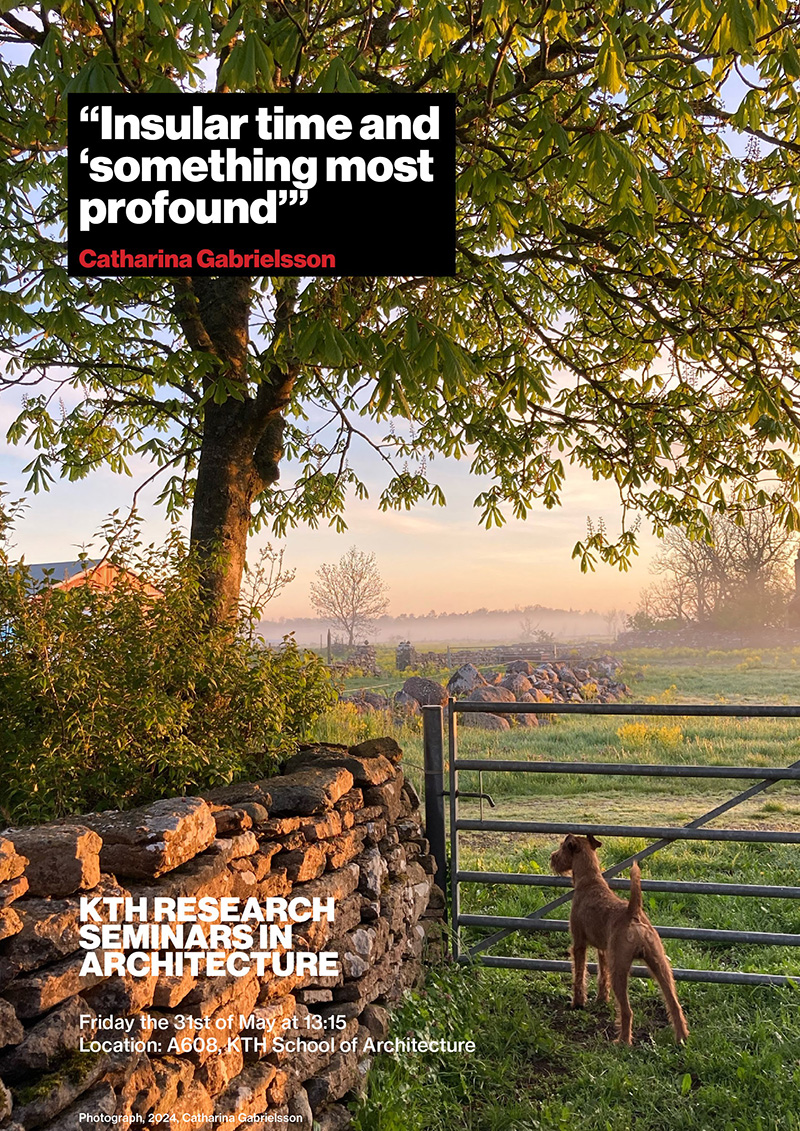"Insular time and ‘something most profound’"

On this Friday, the 31st of May, Catharina Gabrielsson will be presenting a chapter titled “Insular time, and ‘something most profound’” in the forthcoming publication Instituting Worlds: Architecture and Islands (Routledge 2024), edited by Marko Jobst and Catharina Gabrielsson.
Tid: Fr 2024-05-31 kl 13.15 - 16.00
Plats: Conference Room 6th Floor of the Architecture School Room A608
Videolänk: https://kth-se.zoom.us/j/67185547897
Straddling between catastrophe and utopia, islands hold a powerful grip on the imagination. From offshore financial centres to immigrant detention camps, tourist havens to military bases, islands concretize the global forces at play in the multifarious current crises – including that of climate change that threaten some islands with obliteration. For this seminar, I will present my chapter in the forthcoming publication Instituting Worlds: Architecture and Islands (Routledge 2024), edited by Marko Jobst and myself. The chapter evolves from the fringes of Stora alvaret, a Siberian-like steppe renowned for its biodiversity that dominates the southern part of the island of the island of Öland in the Baltic Sea. It forms the setting of my house, a small, rundown farmstead on the outskirts of the village whose original inhabitants belonged to the despised social category known as inhysehjon (in-house paupers); the landless poor who squatted the common land and depended on it for subsistence. Elsewhere, I have conceptualized the implications of restoring this house, and argued how repair and maintenance challenge the very core of the architectural discipline. I’m now venturing beyond the confinements of property in order to trace the imprints of time in the landscape and built environment. Drawing on Gilles Deleuze’s “Desert Islands” (1952), the chapter is based on the premise that insularity cannot be reduced to a spatial condition but has a correspondence in time – a different passage of time, another measure of duration and difference, that we may think of as insular time. If islands, indeed, constitute “a model, a prototype of the collective soul”, as Deleuze suggests, it seems that insular time – as embedded in architecture – could further an understanding on the conditions of freedom, oppression and societal change that remain opaque on the mainland.
The seminar will be start with a power-point presentation that briefly sets out the content of the chapter (15-20 minutes). The full text will be provided to allow for a more focused discussion on the implications of time in and for architecture, especially in view of Deleuze’s complex temporal thinking that has informed this work. I’m also keen to discuss writing practices and how thinking & research evolves in steps. In this case, the material presented here is the outcome of a prolonged process that started with a short experimental essay, was then turned into a conference paper, and finally developed into a book chapter. The seminar also provides an opportunity to discuss editorial practices.

